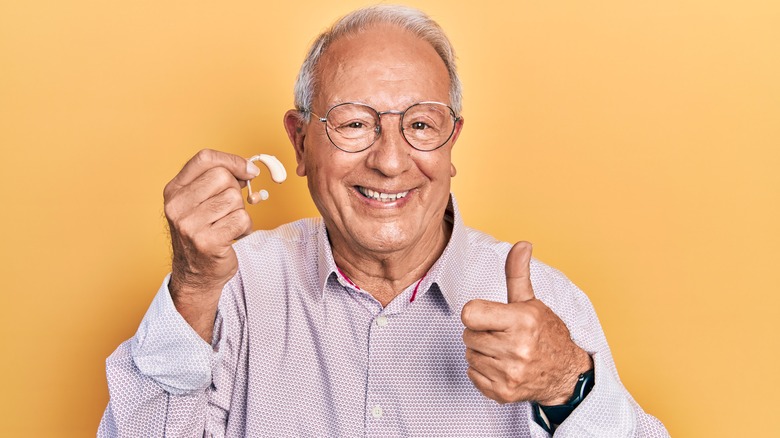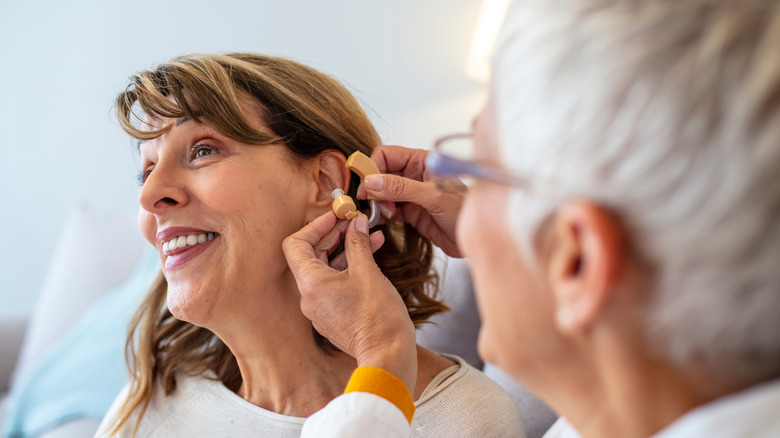Why Does Our Hearing Diminish As We Age?
According to the Centers for Disease Control and Prevention (CDC), most people are born with around 16,000 hair cells in their cochlea (inner ear). These cells are responsible for hearing. Due to exposure to loud noises, these cells begin to show signs of wear over time; some become damaged and die, impairing the hearing function. When any part of the ear or auditory system isn't functioning optimally, you can experience hearing loss.
Although our hearing system can be dysfunctional at any time (and you can take various measures to prevent hearing loss), aging is a risk factor. In fact, presbycusis (age-related hearing loss) is a very common condition that affects approximately one in three Americans between ages 65 and 74, according to National Institute on Deafness and Other Communication Disorders (NIDCD).
Johns Hopkins Medicine describes presbycusis as a gradual loss of hearing, which can happen in both ears. Some symptoms include feeling tired after social events and being unable to follow conversations in noisy places (via WebMD). Here, we'll outline the causes, symptoms, and feasible treatment options.
Causes and symptoms
According to Medical News Today, there are many potential causes of age-related hearing loss that can include the environment, genetics, and underlying conditions. Long-term exposure to excessively loud noises falls under the environmental category. According to the CDC, exposure to loud noise can wear your ear's hair cells out and cause them to die. Harmful effects sustained might continue even after the exposure ends.
Although it is unclear whether age-related hearing loss is genetic, many people affected by the condition have reported a family history (via MedlinePlus). Medical News Today adds that because hair cells rely on blood supply, people with certain underlying conditions such as diabetes and heart disease may be more likely to experience age-related hearing loss.
Symptoms include everyday noises sounding muffled and difficulty detecting background noises (via WebMD). People with age-related hearing loss often request others to speak louder and might increase the volume of television sets higher than they used to. Mayo Clinic suggests talking to your doctor if hearing difficulties become disruptive to your everyday life.
Diagnosis and treatment
According to Healthline, age-related hearing loss can't be cured, but you can manage the condition with various methods. First, it would help to visit medical professionals for an official diagnosis before taking further action. Various professionals come in handy in this area, so your choices are wide.
A primary care doctor will complete a physical examination to ensure your hearing loss isn't tied to other underlying medical conditions. If it isn't, they may refer you to a hearing specialist. An ear, nose, and throat doctor can examine your ears to clarify that the cause of hearing loss is age-related (via WebMD). An audiologist can assess the severity of your hearing loss.
Healthline notes that you may be prescribed special hearing aids or assistive devices like telephone amplifiers. In severe cases, you may be prescribed cochlear implants, which can bypass damaged parts of the ear to deliver sound signals directly to the auditory nerve (via Mayo Clinic).


